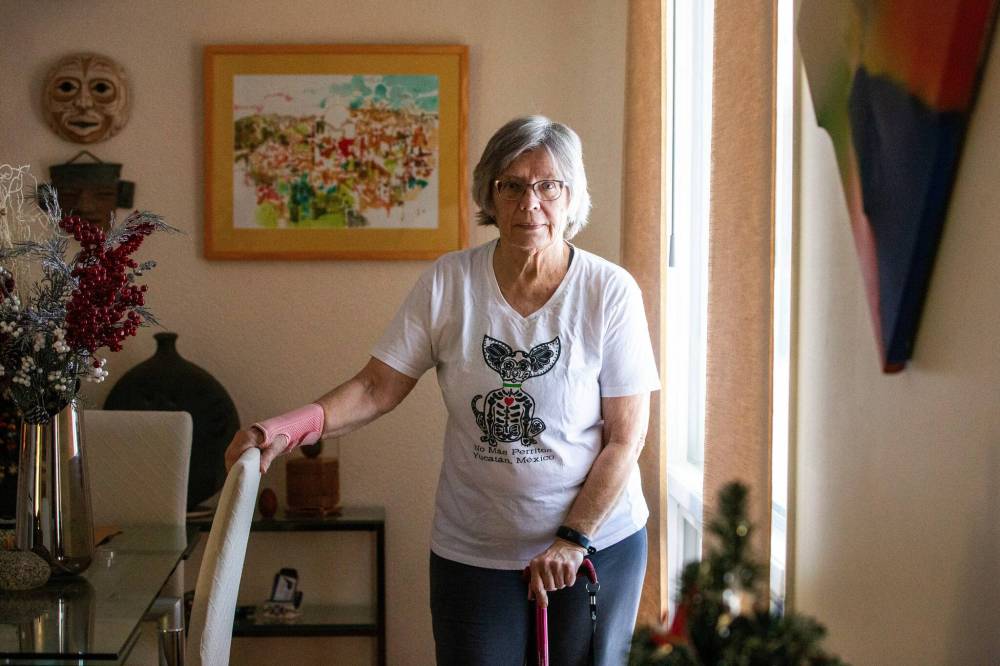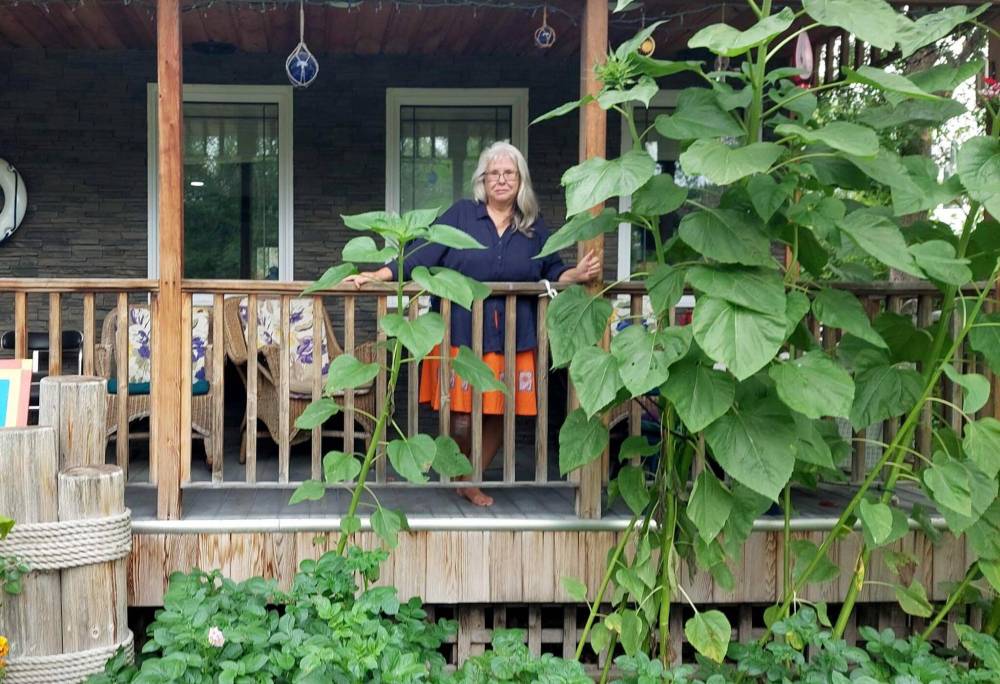‘Outrageous’ bill for surgical task force
Surgery for fewer than 800 Manitobans cost nearly $37 million
Advertisement
Read this article for free:
or
Already have an account? Log in here »
To continue reading, please subscribe:
Monthly Digital Subscription
$1 per week for 24 weeks*
- Enjoy unlimited reading on winnipegfreepress.com
- Read the E-Edition, our digital replica newspaper
- Access News Break, our award-winning app
- Play interactive puzzles
*Billed as $4.00 plus GST every four weeks. After 24 weeks, price increases to the regular rate of $19.95 plus GST every four weeks. Offer available to new and qualified returning subscribers only. Cancel any time.
Monthly Digital Subscription
$4.99/week*
- Enjoy unlimited reading on winnipegfreepress.com
- Read the E-Edition, our digital replica newspaper
- Access News Break, our award-winning app
- Play interactive puzzles
*Billed as $19.95 plus GST every four weeks. Cancel any time.
To continue reading, please subscribe:
Add Free Press access to your Brandon Sun subscription for only an additional
$1 for the first 4 weeks*
*Your next subscription payment will increase by $1.00 and you will be charged $16.99 plus GST for four weeks. After four weeks, your payment will increase to $23.99 plus GST every four weeks.
Read unlimited articles for free today:
or
Already have an account? Log in here »
Hey there, time traveller!
This article was published 19/01/2024 (768 days ago), so information in it may no longer be current.
Fewer than 800 Manitobans underwent out-of-province medical procedures at a cost of nearly $37 million before the surgical backlog task force was disbanded late last year, documents obtained by the Free Press reveal.
The Diagnostic and Surgical Recovery Task Force spent $36.95 million over three years — coming in under budget — on 776 out-of-province procedures, according to figures provided in response to a Free Press access-to-information request. The figures were current up to Nov. 15, even though previously scheduled out-of-province surgeries are continuing until the end of March.
The task force budget for out-of-province surgeries and tests was about $63.2 million over those three years.

MIKAELA MACKENZIE / WINNIPEG FREE PRESS FILES
Judy Waytiuk, who got two hip replacement surgeries in Fargo, N.D., says the $36.95-million price tag is ‘lunacy.’
After forming government following the Oct. 3 election, the NDP first paused, and then shut down, the task force in November.
In its first fiscal year of operation, from late 2021 to March 2022, the task force spent $650,000 on 10 out-of-province procedures, according to figures provided through the provincial Health Department’s finance unit.
In its second fiscal year, it spent $18.8 million on 274 procedures.
In the third and final year, up to Nov. 15, it spent $17.5 million on 492 procedures.
The figures provided state the task force budgeted $650,000 for out-of-province procedures in its first year, $34.3 million in its second and $28.2 million in its third.
That kind of expense is both obscene and shameful, said a Winnipegger who was one of the last patients to undergo surgery outside the province before the task force shut down.
“That’s lunacy,” said Judy Waytiuk, who had two hip replacements via the program.
“I’m still very glad I got to go out of province, I won’t lie. I’m still very glad about that, but the cost — that’s outrageous.”
Waytiuk recently submitted a $1,100 claim to the provincial government for reimbursement of expenses incurred when she travelled to Fargo, N.D., for her second hip replacement on Dec. 14. Her first procedure was completed in Fargo last summer.
The province should be accountable to the public for the costs, she said.
A Manitoba policy analyst agrees.
Molly McCracken, director of the Manitoba office of the Canadian Centre for Policy Alternatives and board member of the Manitoba Health Coalition, questions how the budget was set for the task force, saying research has shown private health care is more expensive to deliver.
“Public dollars were used for private surgeries with no information on the value for money of this service. This lack of transparency in the public health system is unacceptable,” McCracken wrote in an email.
“Manitoba is right to be focusing public dollars on key items like staffing to build capacity to meet the need for surgeries locally.”
Health Minister Uzoma Asagwara said the task force’s approach — sending patients and money out of Manitoba instead of investing that money in the provincial health-care system — hampered efforts to build surgical capacity here at home.
That approach has “very real impacts,” Asagwara said Thursday.
“We missed an opportunity for years to ensure that we are working with front-line health-care workers, surgeons, health leaders in Manitoba that meet the needs of Manitobans, and we’ve taken immediate steps to change that culture.”
The minister said the task force’s decision-making approach was, based on information received from health-care leaders across the province, “at times very disruptive.”
“We are ultimately seeing the impacts of some of that decision-making …. Had they taken a different approach, we would have more capacity right now in Manitoba for the Manitobans who need it,” Asagwara said.
Heather Stefanson’s Progressive Conservative government created the task force in December 2021 to tackle pandemic-fuelled surgical backlogs.

SUPPLIED
Janice Scott says she raised questions about the long-term benefits of the program.
The task force had a $40-million budget in 2021-22 and a $110-million budget in 2022-23. When it was dissolved, the task force was working with a 2023-24 budget of $130 million and 78 full-time staff, the health minister’s office said.
The task force spent more than $7.6 million on salaries in less than three years, the Free Press first reported in December.
The specific values of the cross-border contracts negotiated by task force officials haven’t been publicly disclosed.
There were still as many as 87 patients waiting to have surgery elsewhere when the task force was shut down. The province previously said scheduled surgeries arranged via the task force would continue until the end of March.
Winnipeg Beach resident Janice Scott was referred through the task force for knee-replacement surgery in Fort Frances, Ont., in August. She expressed some discomfort after learning how much was spent.
“I am actually embarrassed by how much it cost because I was concerned about that all along,” she said.
Scott said she was reluctant to leave Manitoba for surgery, but after being referred to the task force, she thought she would be freeing up a surgery date in Manitoba for someone else on the wait-list.
The criteria were strict about who qualified to leave the province through the program, she said, adding she raised questions about the long-term costs and benefits of the program.
“I really did believe that if I was able to go out of province, that would make more room for someone else who was not able to go out of province,” she said.
“I thought that would take the burden off surgeries in Manitoba and speed things up for people that way.”
She did need followup care post-surgery in a Winnipeg hospital.
“I am very grateful that my surgery has happened because my life has improved dramatically. But, to be honest, I hope that if and when I need my second knee done that I’m able to have it done in-province because that experience was not one I want to repeat,” she said.
Questions about finances were front and centre when Premier Wab Kinew suspended the task force’s operations in October, days after the NDP government was sworn into office. Kinew pointed to a lack of oversight and said he wanted to review the program’s expenditures.
Progressive Conservative MLA Kathleen Cook, health care critic for the Opposition, has since said the NDPs shouldn’t have shut down the task force without something to replace it for Manitobans who are still waiting for surgeries.
“The NDP has cut the task force with absolutely nothing in place to improve capacity or staffing in Manitoba for patients waiting for care today, many who worry the loss of out-of-province treatment options will leave them waiting months longer,” Cook (Roblin) said in a statement this week.
katie.may@winnipegfreepress.com

Katie May is a multimedia producer for the Free Press.
Our newsroom depends on a growing audience of readers to power our journalism. If you are not a paid reader, please consider becoming a subscriber.
Our newsroom depends on its audience of readers to power our journalism. Thank you for your support.
History
Updated on Friday, January 19, 2024 2:24 PM CST: Updates with quotes







